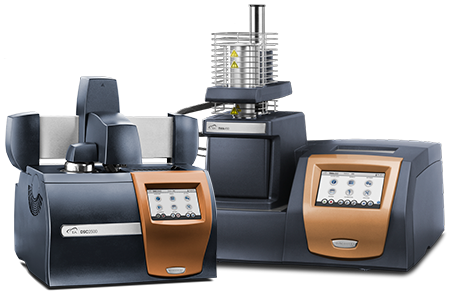Optimize Product Development with Crucial Data on Electronics Performance and Safety
TA Instruments | Waters have put together a lab package designed specifically for your electronics lab. New designs can only succeed if they are durable, functional, and safe. By combining these instruments in your lab you can expedite your electronic material development.
Data-Informed Electronics Designed for All Environments
As electronic devices become smaller and thinner, the impact of temperature or humidity on thin films or multi-layer packages will become more prominent. Materials’ resulting expansion or contraction can lead to delamination between layers or incompatible fit of parts under extreme conditions.
Electronics developers need to understand material changes under these extreme conditions to guide material selection, development, and production. Differential Scanning Calorimetry (DSC) and Thermomechanical Analysis (TMA) including humidity analysis (TMA RH) offer valuable information about all electronic materials and components so products can be designed to withstand challenging conditions.
Test Material Compatibility and Stability
Easily determine material compatibility, especially as materials change in response to heat or humidity. TMA helps users predict delamination of layered materials through measurement of the CTE of the various layers.
Obtain Crucial Data for Printed Circuit Boards
Measure the glass transition temperature and extent of cure of adhesives used to hold components in place on printed circuit boards. TMA is extremely sensitive to the multiple Tgs that may exist on a PCB. DSC can quickly capture any residual cure of epoxy components, ensuring the cure is complete.
Easily Measure Multi-Layer Material Properties
The TMA, with the penetration probe, can easily measure the thickness of layers in a multi-layered sample under humid or dry conditions. DSC can provide information such as glass transition temperatures and heat capacity of the samples. Together, these techniques help electronics users develop high-quality materials and products to perform under a wider range of conditions.


